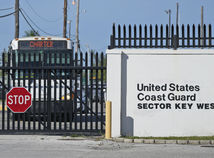To support his position, Nowicki takes a swipe at those who would “create their own meaning, ex nihilo” which, as far as people claim to do so, he’s right to; after all, no one who gives the matter thought simply whims their own meaning into existence, but rather forms such from a complex interplay of temperament, experience, information, reflection and evaluation. Similarly, the exhortation to “create God”, which Nowicki attacks, seems not so much a “cop-out” as a call to revolution, in the most precise sense of that word: a turning of the wheel back to the original start-point. In all probability, if not certainty, such a phrase very much describes the origins of our dead ‘n’ dying gods in the first place!
Further along, our author critiques societal attitudes toward the concepts of self-esteem and suicide, deriding our obsession with the former, as is appropriate for his worldview, yet offering a perspective on the latter that dovetails with the sentiment of many of his co-religionists (as well as most other people):
Self-slaughter is an undeniably bold act…a leap into the unknown, the “undiscovered country.” Grandstanding moralists insist that the person who kills himself is a despicable coward…but could it not be said that one who refrains from suicide is a coward because his act suggests a fear of death?
How’s that for a potshot? Sometimes the “pro-life” position can prove anything but life-affirming.
The next chapter tries to take on two different ideas as if they were one: Political Correctness and moral relativism. Whilst the former ostensibly parades as a viewpoint of “tolerance”, in reality it’s nowt more than a Trojan horse for the Lefty Gospel which, like all good gospels, brooks no dissent.
Set against this new religion, the plurality of moral perspectives out there serves as something of a bulwark, even if they will clash amongst themselves as well as their common foe. No call for a fictional “equality of validity” need be invoked; only the reasonable rule of thumb that accepts a stopped clock gets it right twice in a day.
Nevertheless, Nowicki nails perfectly the tendency of many to equate amoralism and irreligion with holding oneself in thrall to one’s “selfish genes”.
One’s enslavement to appetite (money, power, sex, fame), then motivates a fawning devotion to one’s boss, one’s government, one’s betters. The only proper response to bullying at their hands is dutiful acquiescence. After all, they have power.
Post-Christian man: thy name is Peter Keating!
Dunno ‘bout you, but, like Stirner, I prefer to “satisfy the whole chap”; “dutiful acquiescence” to either divine or earthly authority just fails to cut it, in that respect: been there; done that; binned the uniforms….
The fourth chapter reads as a critique of culture and government on the domestic (read: American, though it applies to the West generally) front. Unsurprisingly, the author sees the rot as a natural consequence of losing faith in Father, Son and Holy Ghost; the deserts of a culture that long lost its moorings. “If God exists,” states our author, “two things can be said with certainty, about an ungodly, illegitimate government: it will be both chaotic and tyrannical.”
I see things as just the opposite; the modern, expanding state does everything but do away with Christ! Sure, the modern, lib-dem secularist might do so in name, yet the salvationist rhetoric spewing from his gob all too often belies his atheistic airs. The incessant desire of this-or-that demagogue to wage a War on Whateverthefuck, in order to save society from itself; the desire to spread the gospel of “democracy” to those foreign heathens, in order to save humanity from itself; and doesn’t all the fussing about PC terminology, culminating in the legalistic lynching of the “hate criminal”, come off as an enforcement of the edicts found in James 3: 9-12?
Indeed, it seems, despite my prior scepticism, that Christ did die, only to rise again! Between the neo-colonialist evangelism of the Right, and the neo-Puritanical reformations of the Left, what does the modern managerial-humanist state amount to, but the ultimate culmination of his project? Brothers and sisters of the congregation, you no longer need wait for the Second Coming: it takes place under your noses, over your heads.
Faced with such, one can’t help thinking that genuinely ungodly, less grandiose governance would be a step in the right direction for the West. Thus, when Nowicki states “That which is absent will not prevail over that which is present” in the next chapter I see this, contrary to his intent, as a crowning argument for the authentically irreligious to defend their “present”, corporeal culture against the encroachment of those who worship “absent”, chimerical deities–foreign and domestic–be they openly religious or superficially secular.
Thus, an egoistic argument takes form, one which I have little problem with; however, it seems somewhat out of sync for Nowicki, a deontologist, to champion a renaissance of “faith in a transcendent God” on consequentialist grounds:
Europe will likely turn into a Mecca soon, because Christianity is all but dead. Secular multiculturalism is no match for those who have transcendent conviction. Those who believe they are soldiers for God have added incentive. They are driven to battle.
As much as the author may admire the “transcendent conviction” of the abdullahs and his fellow Christian soldiers, such a conviction, in itself, serves no verification of the transcendent. Many, Westerners seem to have gotten the memo, hence the “spiritual sloth and moral decadence” he chides. Ironically, the elements of the West he bemoans might not be down to unbelief, but rather residual belief in the commandments (if not the Commander); after all, what do PC, mass immigration, socialism and wars for democracy exemplify (on paper), other than the Christly virtues of charity and altruism? Just as one need not become a monster in order to fight one (as Nowicki notes), one can ground opposition to the Transcendentally Convicted in decidedly non-transcendent factors.
Indeed, it seems that Nowicki takes one such factor into account when he reflects upon “the decline of the white man” in the West, “his” ancestral home. His argument, that whitey risks becoming a modern day nigger, carries validity; witness the concerted efforts of the clerics of White Guilt and the Racefinder Generals to downplay aspects of European history in favour of championing cultural awareness in the non-white populace. I see in on these shores, whenever British whitefolk get a public telling-off for waving around their St Georges and Union Jacks, those oh-so menacing symbols of incorrigible bigotry; or when they dare declare that the irreproachable religion of Islam may–shock horror–be repressive, medieval bullshit! I’m sure Nowicki could cite examples from his side of the pond: I certainly read my fair share….
Yup, this melanite can certainly agree that “the other fellow has a point of view”!
He also makes a point of highlighting the champagne-liberal double standard that amplifies the fuck-ups of whites throughout history, whilst excusing, ignoring and downplaying those of their darker-hued brethren:
“White” becomes a crude shorthand for cultural stagnation, incivility, even barbarity….All that is patently illiberal in non-white cultures—sexism, ethnocentrism, barbaric rituals and superstition—must be carefully ignored. Nonwhites cannot be construed as bad in any way. Criticism of nonwhites is “racist,” meaning baseless and bigoted.
Speaking as a non-white, I can’t say I find this Leftist double standard all that encouraging. By turning a blind eye to non-white fuck-ups, making up a myriad of excuses in some cases, do they unwittingly betray what they really think about darkskins? Nowicki offers some insight with his sketch of the colonial mindset:
They are never so contemptuous of the “savages” as they are of their own kind….Monstrous behaviour by the natives is understandable; they are from the jungle and perhaps know no better, but a civilized man reverting to such behaviour strikes us as uniquely grotesque.
That reminds me of a convo I had with Mein Eschaton. Does the paternalistic colonial mindset differ, in any fundamental way, from that of the champagne lib-dem? Does salvation imply a certain sense of supremacy? Can their urge to play the hero and stay on top be sated without an eternal victim, a perpetual darky-in-distress?
Warning: following this line of thinking will make you very paranoid, indeed!
As such, when Nowicki tries to put the gloss on white colonialist intentions, my MRDA-sense starts tingling. Sure, I agree that “the white man had an undeniable hand in bringing vast improvements” around the world; whether them-there colonialists intended “justice, mercy and kindness” for the planet’s non-white inhabitants is a different matter. I believe that, like I believe “Iraqi liberation” was the driving force behind toppling Saddam!
Still, to deny the genuine goodwill of many whites who interact with non-whites would certainly equate to an injustice; whilst not being completely sold on his take on things, I do think the passing of Western civilization, with its leanings toward individual liberty, would be quite the loss, and hope his proclamations of doom for Europeans amount to alarmism.
After trawling through the filth of the world for the previous few chapters, Nowicki gets metaphysical for the seventh chapter, probing the nature of the deity he serves. Reading this chapter once more got me wondering: “Even if a Supreme Power exists, what makes you think it’s your Supreme Power?”
“Good”, Nowicki concludes, consists in carrying out the will of God as he commands it. No more. No less. “If anyone exemplifies justice and goodness, it is He,” our author states. All well and good, you might say, except that many a time in the scripted verse, he sanctions acts many would call harsh, brutish—evil. Yet, how can this be if God is “good” personified? If God ordered us to go on a baby-raping spree, would we be irredeemable abominations for refusing his command?
Or perhaps, this is all self-justifying bullshit on his part. What if God, beyond the ken of mortal man (so says mortal man), is something other than what we’d like to believe? What if, as Nowicki speculated in a previous chapter, God is Allah? Is there a nice, warm place waiting for us kafirs in Jahannam, be we Christian or atheist? Fuck that—what if the character of God more closely resembles a Lovecraftian abomination, as opposed to anything we would recognize as “good” or “loving”?
Many of Nowicki’s observations would support the latter view: he takes note of the fact that “Good people often suffer greatly, while bad people live long, blissful lives” and can find “little rhyme or reason, no discernable parallel between how we behave and the extent to which we suffer.” Rather than unconditionally praising God, he fully acknowledges the lopsided view that many of his fellow believers take toward the deity: “God gets the credit for his seemingly capricious kindnesses and is spared blame for his apparent cruelties.” One could write a book on such a mindset: How I Learned to Stop Worrying and Love Cthulhu.
Why, then, must this capricious “Creator” be sated? Is it cos he holds the key to life eternal? How do we know that isn’t a ruse to keep us jumping through hoops for his amusement? After all, “inscrutable” he is, and “mysterious” are his ways. And yet, or perhaps because of this, many strive to sate him, just to stay in his good graces and reap the rewards of such…anything but Hell!
What does this remind you of? Ah, yes…
The only proper response to bullying at their hands is dutiful acquiescence. After all, they have power.
Of course, he’s already decided who he’s gonna keep and fire, right? All that happens constitutes his will, in any case. That includes the deaths due to murder, starvation, genocide, hurricanes, abortion….
It is the deaths in the latter category which especially trouble Nowicki. So much so that, in the eighth chapter, he criticizes “the culture of death” he sees taking route amongst a post-Christian populace. “Secular liberals approve of the killing of unborn children, and the euthanizing of the sick, aged, and infirm,” says he, making a faint allusion to Nazi Germany in the process. Apt, I suppose, given his views…except pushing for voluntary euthanasia (i.e. the suicide he expressed an admiration for) in no way equates to forcing such a procedure on the unwilling.
Which leaves us with abortion.
I wonder, if they oppose it so thoroughly and vehemently, why aren’t more Christians literally up in arms about abortion? Why greet the latest clinic-bomber with distancing apologetics? A regard for the “sanctity of [all human] life” serves as a brilliant catalyst to bring down those abortion death camps, nae? Yet, for all the noise and fury, hesitance seems to rest at the heart of the “pro-life” camp.
That said, Nowicki can’t be faulted for this insight:
In a culture that flouts boundaries as a matter of course, abortion is largely relegated to the realm of the private: it remains off-frame. What accounts for this oversight?
The incongruence isn’t lost on me. Even in works that champion pro-choice sentiment, the act of abortion is discussed and depicted in relatively hushed tones and shades. Why no CGI, bullet time renditions of vacuum aspirations? What lies behind the lack of curettage quips on syndicated sitcoms? Is “post-Christian” too presumptuous an adjective for the current age?
Which of the SKY channels broadcasts literal dead baby—or rather foetus—comedy?
It’d be interesting to observe the reactions to a guerrilla broadcasting campaign by fundamentalist Christians; I’ll say that much!
Whilst Nowicki laments the loss of respect in “the sanctity of life”, I see it as an inevitable result of looking deep into the rabbit hole. When the personification and sanction of “good” is, at best, nonexistent, at worst revealed as a cruel creature of caprice, can one be faulted for scepticism?
In either case, is life worth living? After eight chapters, our author remains agnostic in regard to an answer; I say it depends on how one experiences one’s life. However engaging it may prove to probe for an answer, the hunt for a universal, binary response ultimately strikes me as a futile endeavour. Furthermore, I don’t accept Nowicki’s (or rather G.K Chesterton’s) dichotomy between the path of Christ and the path of Buddha, preferring the “live as if you would die tomorrow: plan as if you would live forever” approach. A bit too close to a “choose-your-own-adventure” style of thinking (How I loved those books!)? Perhaps, though I like to think I approach the matter with more thought and less desperation than Nowicki’s caricature allows. In light of my knowledge, I really wouldn’t—couldn’t—play it any other way.
Nowicki will not play it any other way either; uncertain of the right choice, he nevertheless urges the reader to gamble, all the same. “Have faith in faith” are his parting words to us; the pomo-homo caricature his diarist rips apart would call this “metafaith”. It fits the description. For all the calls to logic, his dismissal of emotionalist believers (“belief in faith will not save us”), and his proclamations of “what do one’s own interests and preferences matter when it comes to the truth?”, Nowicki’s stance comes down to something of a leap of faith: a burning desire to fill the gap, the void with—something!
And, of course, how could it be otherwise, what with faith forming the bedrock of his outlook from the get-go?
All that jettisoned, I’d be lying if I said I didn’t admire Nowicki’s determination to embody the Knight of Faith; despite our disagreements, I understand his desire to hold fast to principle to prevent being torn asunder by external forces. Like his other idol, Luke Skywalker, in sincerity, he succeeds. His Christianity strikes me as downright heterodox when set against an age where wishy-washy belief, as opposed to rampant atheism, seems to be the order of the day. Witness the phenomenon of the creature I call the Sunday Christian: the “believer” who only visits church on the designated day to beg forgiveness for the sins committed (and to be committed) on the other six days. Often, those same fuckers will see fit to harangue heathens like me, letting loose the pieties from their quim-loving, cock-sucking mouths.
Seize the day or seize the Deus, you conflicted cunts: just get your half-arse out of my face!
That reminds me of another thing I like about this bloke:
We may observe ostensibly “pro-life” adherents of scripture who are not moved to reflection over the brute reality of U.S bombs destroying innocent human life in foreign countries.
And before that:
We know it was wrong for the hijackers to destroy thousands of civilian lives by crashing planes into the World Trade Center, but we forget that in our country’s attack on Japan in 1945, we committed the same crime on a much larger scale.
Christian complacency just got its arse kicked out the door! In the case of the latter excerpt, it amused me how people could weep like bitches over 9-11 and the Holocaust, yet pull out a full plethora of excuses to justify the literal holocausts that were Hiroshima, Nagasaki and Dresden—glad I wasn’t the only one to pick up on that.
So yes, it would seem I got quite a bit out of this little literary gem. More than I initially thought when I read the synopsis. A powerfully partisan, yet probing piece that strikes the reader in the face with sincerity, Considering Suicide may or may not win one over to the author’s outlook: what it will do is make you re-examine your own. Is life worth living—for you?
I’m sure there’s more to say, but, for now, this shall suffice….
~MRDA~
X




















Celá debata | RSS tejto debaty